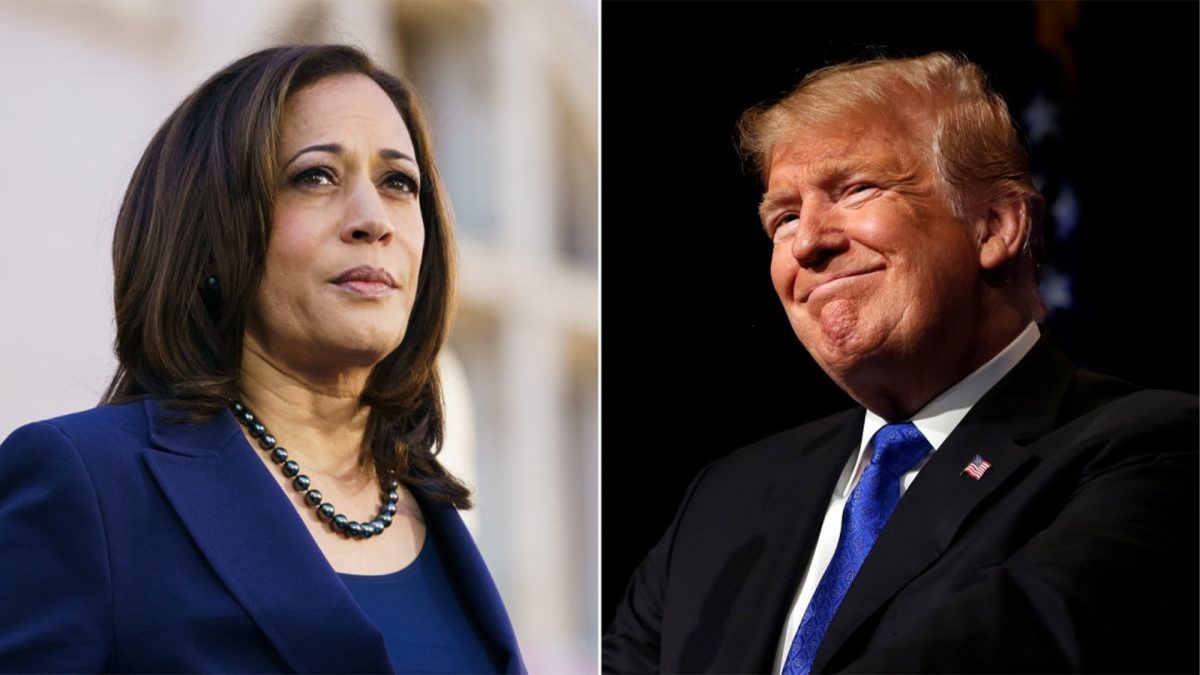In a post on his Truth Social platform, Trump remarked, ‘If you think things are expensive now, they will get 100 times WORSE if Kamala gets four years as President’. He further claimed that under her plan, ‘Kamala will implement SOVIET Style Price Controls. She will abolish private health care…’ read more
)
Former US President Donald Trump has said his rival and Democrat presidential nominee Kamala Harris will ruin the economy. Reuters
Former President Donald Trump has sharply criticised Vice President Kamala Harris’s newly unveiled economic plan, asserting that her proposals would worsen the cost of living.
In a post on his Truth Social platform, Trump remarked, “If you think things are expensive now, they will get 100 times WORSE if Kamala gets four years as President.”
He further claimed that under her plan, “Kamala will implement SOVIET Style Price Controls. She will abolish private health care, and make California’s ridiculous tax policies the law of the land, meaning EVERY American will be taxed up to 80% of their income! If you want more CASH and less TAX, VOTE TRUMP!!!”
Competing economic visions
Trump and Harris travelled to North Carolina this week to deliver what were billed as significant addresses on the economy. Each sought to articulate their economic visions, emphasising the role of federal government intervention in markets to bolster the economy. However, their approaches to when and how this power should be wielded diverged considerably.
Harris began to shape her version of progressive economics, which has gained prominence within Democratic circles over the past decade. This economic philosophy advocates for robust federal action to enhance competition and rectify market distortions, New York Times reported
Her approach includes significant tax hikes on corporations and high earners, designed to fund assistance programmes for low- and middle-income workers. Simultaneously, she proposed generous tax incentives for companies engaged in activities she and fellow progressives deem economically beneficial, such as developing technologies to combat climate change and constructing affordable housing.
In contrast, Trump’s economic message is straightforward: he contends that he revitalised the American economy during his first term and promises to do so again. Trump outlined a series of commitments on how he would leverage government power to intervene in markets and aid consumers. He pledged to lower car insurance costs within his first 100 days and vowed to slash energy prices by half. He also proposed deporting millions of immigrants as a strategy to reduce housing costs.
Fiscal concerns and budgetary implications
Questions remain about the broader scope of Harris’s agenda, particularly regarding which tax increases she would advocate to offset the proposed tax cuts and spending initiatives. The nonpartisan Committee for a Responsible Federal Budget, focused on deficit reduction, estimated on Friday that her plans would increase the federal deficit by $1.7 trillion over the next decade unless counterbalanced by new revenue sources, New York Times reported.
In contrast, analysis from the same committee suggests that Trump’s tax reductions could add $7 trillion to the federal deficit over a decade, with only partial offsets from tariffs or the repeal of tax breaks instituted by Biden.
Clashing economic philosophies
In North Carolina, both Trump and Harris aimed to portray the other’s economic philosophy as detrimental to the nation’s economy and working families. Trump cautioned that Harris’s policies could trigger a stock market crash reminiscent of 1929. In response, Harris argued that Trump’s tariffs would effectively impose “a Trump tax on petrol, a Trump tax on food, a Trump tax on clothing, a Trump tax on over-the-counter medication.”
Despite their differences, both candidates expressed support for Medicare and endorsed the idea of exempting some tipped income from federal taxes.

 1 month ago
8
1 month ago
8
)
)
)
)
)
)
)
)
)
)
)
)
)
)
)
)
)
)
)
)
)
)
)
)
)
 English (US) ·
English (US) ·